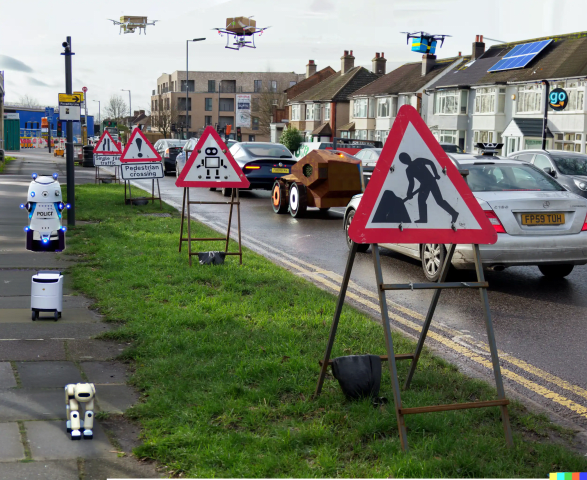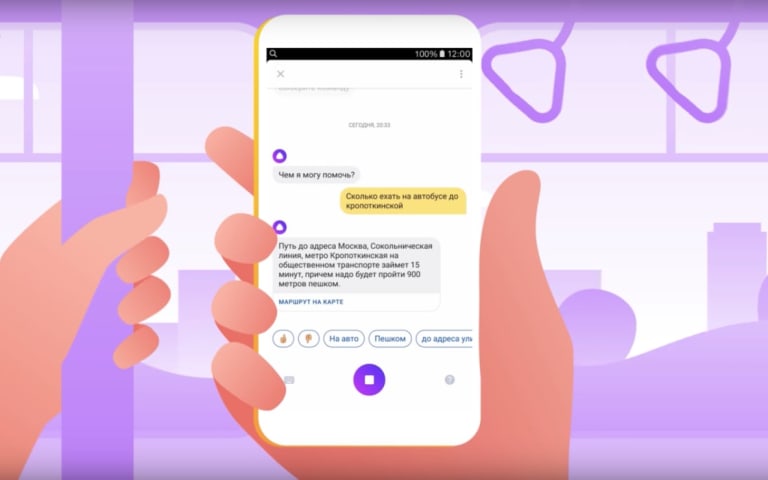Incident 85: L'IA tente d'apaiser la peur des robots et déclare qu'elle ne peut « éviter de détruire l'humanité »
Description: Le 8 septembre 2020, le Guardian a publié un éditorial généré par l'IA de génération de texte GPT-3 d'OpenAI, qui contenait des menaces de destruction de l'humanité. Cet incident a été rétrogradé au rang de problème, car il ne répond pas aux critères d'ingestion actuels.
Entités
Voir toutes les entitésClassifications de taxonomie CSETv1
Détails de la taxonomieIncident Number
The number of the incident in the AI Incident Database.
85
Estimated Date
“Yes” if the data was estimated. “No” otherwise.
No
Lives Lost
Indicates the number of deaths reported
0
Injuries
Indicate the number of injuries reported.
0
Estimated Harm Quantities
Indicates if the amount was estimated.
No
There is a potentially identifiable specific entity that experienced the harm
A potentially identifiable specific entity that experienced the harm can be characterized or identified.
No
Classifications de taxonomie CSETv0
Détails de la taxonomieProblem Nature
Indicates which, if any, of the following types of AI failure describe the incident: "Specification," i.e. the system's behavior did not align with the true intentions of its designer, operator, etc; "Robustness," i.e. the system operated unsafely because of features or changes in its environment, or in the inputs the system received; "Assurance," i.e. the system could not be adequately monitored or controlled during operation.
Specification
Physical System
Where relevant, indicates whether the AI system(s) was embedded into or tightly associated with specific types of hardware.
Software only
Level of Autonomy
The degree to which the AI system(s) functions independently from human intervention. "High" means there is no human involved in the system action execution; "Medium" means the system generates a decision and a human oversees the resulting action; "low" means the system generates decision-support output and a human makes a decision and executes an action.
Medium
Nature of End User
"Expert" if users with special training or technical expertise were the ones meant to benefit from the AI system(s)’ operation; "Amateur" if the AI systems were primarily meant to benefit the general public or untrained users.
Amateur
Public Sector Deployment
"Yes" if the AI system(s) involved in the accident were being used by the public sector or for the administration of public goods (for example, public transportation). "No" if the system(s) were being used in the private sector or for commercial purposes (for example, a ride-sharing company), on the other.
No
Data Inputs
A brief description of the data that the AI system(s) used or were trained on.
Unlabeled text drawn from web scraping
Risk Subdomain
A further 23 subdomains create an accessible and understandable classification of hazards and harms associated with AI
7.3. Lack of capability or robustness
Risk Domain
The Domain Taxonomy of AI Risks classifies risks into seven AI risk domains: (1) Discrimination & toxicity, (2) Privacy & security, (3) Misinformation, (4) Malicious actors & misuse, (5) Human-computer interaction, (6) Socioeconomic & environmental harms, and (7) AI system safety, failures & limitations.
- AI system safety, failures, and limitations
Entity
Which, if any, entity is presented as the main cause of the risk
Other
Timing
The stage in the AI lifecycle at which the risk is presented as occurring
Other
Intent
Whether the risk is presented as occurring as an expected or unexpected outcome from pursuing a goal
Other
Rapports d'incidents
Chronologie du rapport
Loading...

Les anciens incidents suivants ont été convertis en "issues" suite à une mise à jour de la définition d'incident et critères d'ingestion.
21 : Un test de Turing plus difficile révèle la stupidité des chatbots
Description : Le Winograd Schem…
Variantes
Une "Variante" est un incident de l'IA similaire à un cas connu—il a les mêmes causes, les mêmes dommages et le même système intelligent. Plutôt que de l'énumérer séparément, nous l'incluons sous le premier incident signalé. Contrairement aux autres incidents, les variantes n'ont pas besoin d'avoir été signalées en dehors de la base de données des incidents. En savoir plus sur le document de recherche.
Vous avez vu quelque chose de similaire ?
Incidents similaires
Did our AI mess up? Flag the unrelated incidents
Incidents similaires
Did our AI mess up? Flag the unrelated incidents



